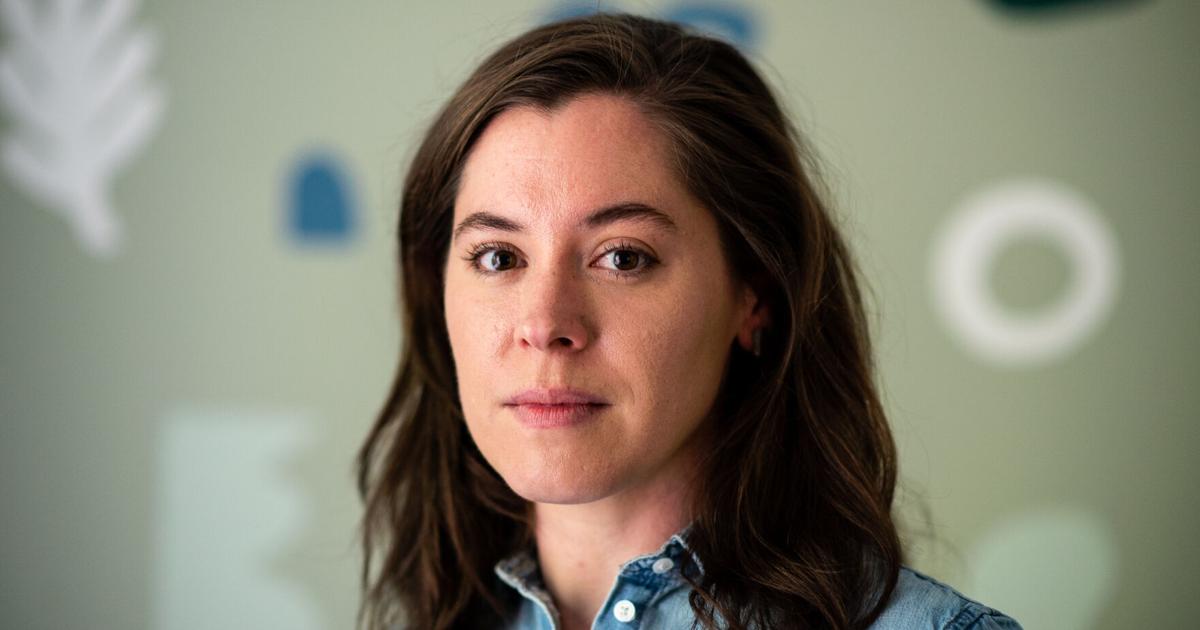“World Without End: Essays on Apocalypse and After” by Martha Park, Hub City Press, 240 pages.
It’s hard to say something new about a bird that’s likely been extinct for over 80 years, especially one like the ivory-billed woodpecker — a species that has generated its own cottage industry of books, essays, scientific surveys and conspiracy theories since its last universally accepted sighting back in 1944.
But in “World Without End,” Martha Park’s debut collection of essays exploring the intersections of the climate crisis and faith, Park adds a fresh twist to the ivory-billed saga.
She’s interested in the religious overtones of the bird’s many nicknames: the Good Lord Bird (for the exclamatory disbelief purportedly expressed upon seeing the woodpecker’s enormity), the Grail Bird (after the passion some birders have to prove its continued existence) and the Lazarus Bird (because now the poor thing won’t stay dead).
Park offers up the more nuanced and no less biblical “resurrection creature,” for a bird that once depended on forests of newly dead trees, their trunks easily permeable and grub-laden, for shelter and subsistence. It’s too bad, she reasons, that the ivory-billed woodpecker disappeared during this era of increased logging, saltwater incursion and hurricanes.
More dead trees would have made the species among “the perfect creatures for our time, at home in a world of change and disruption,” she writes.
“World Without End: Essays on Apocalypse and After” by Martha Park, Hub City Press, 240 pages.
PROVIDED PHOTO
You might, like me, own a sagging shelf of books on the Anthropocene age, the term for the past century of devastating human-induced environmental impact. This makes me a doom-reader, sure, and, I’d contend, a well-informed realist. After a decade-plus of focused reading, I can’t help but feel a bit jaded. Another book, the gloomily benumbed reader asks, about dead birds, melting ice caps, climate refugees, so on and so forth? (Full disclosure: I’ve written one myself).
But in these echo-chambered times, “World Without End” is a much-needed palliative.
Atheists and agnostics are true believers when it comes to the climate crisis. Though, according to a 2022 Pew Research Center survey, only 8% of Americans identify as both “highly religious” and “very concerned about climate change.”
Park, the Memphis-based essayist, is the daughter of an itinerant Methodist pastor, now retired, who uprooted his family every three or four years.
“Whenever we moved,” she writes, “one group of white-haired ladies was replaced by another, all singing the same songs.”
Her father’s politics skewed progressive. Parishioners at times called him a socialist, accused him of not believing in Jesus. He refused to preach from the Book of Revelation for its apocalyptic bent and made his young daughter listen to Rush Limbaugh, that bloviating mouthpiece of political doomsayerism, so she “would know what the enemy was saying.”
So, perhaps, Park was destined to begin her writing career, literally and figuratively, at the world’s end.
“With increasing frequency,” she writes, “I’ve found the language of apocalypse creeping up in my own life.”
Still several years away from turning 40, her retirement plans “consist entirely of assuming the world will no longer be habitable by the time I’m sixty-five.”
Most of the book’s dozen essays have been assembled from various print and online publications, which can, at times, give “World Without End” a cobbled-together feel. The collection’s saving grace is a third through line that threads across many of these pieces: Park’s impending motherhood.
The birth of a child marks any number of beginnings but also represents its own, distinct world without end — a constant seesaw of rapturous moments and tiny apocalypses that can send even the most non-spiritual parent to their knees in thanks.
Bunkered down during the pandemic, a pregnant Park and her husband binge-watched “Doomsday Preppers” and the survivalist series “Alone,” then reluctantly begin stockpiling their own survival kits. The apocalyptic impulse, she reflects, is a constant, especially in Christian thought. The fifth-century theologian known as St. Augustine compared his world with that of Christ’s earliest followers: “Those were the last days then; how much more so now!”
In other essays, Park hits the road, searching her environs for end-times fun.
In Dayton, Tennessee, she attends the annual reenactment of the Scopes Monkey Trial, an American Waterloo for an earlier evolutionary stage in Christian fundamentalism. She ponders the reactionary binarism that then pitted creationists against Darwinists and today has led to the polarized decay of American politics.
Christians, she reminds, “ostensibly model their lives and values” after a man who, above all else, contained multitudes: “both human and divine . . . dead and resurrected.”
Traveling to the Florida Panhandle, she unearths the story of Elvy Edison Callaway, who claimed that the site of the biblical Garden of Eden could be found along the Apalachicola River. Noah sourced the wood for his Ark from Torreya taxifolia, commonly known as Florida torreya or stinking-cedar, a species now listed as critically endangered due to a fungal blight.
In Kentucky, she tours Ark Encounter, an amusement park for liturgical literalists and young-earth creationists centered on a full-size replica of Noah’s biblical barge. The exhibit catalogs the 6,744 animals that humanity’s O.G. prepper brought on board, including a pair of unicorns and several dozen dinosaur species, or in creationist parlance, “kinds,” the term that appears in Genesis.
Despite denying climate change, the Ark Encounter’s parent organization, the Creation Museum, sued its insurance company for $1 million in damages due to unseasonably heavy rains in 2019.
“There never was a more holy age than ours,” writes Annie Dillard, a notable influence on Park, “and never a less.”
Despite its often bleak perspective, “World Without End” is a spirit-buoying book. I’m excited to see where Park takes her readers next.
Rien Fertel is the author of four books, including, most recently, “Brown Pelican.”

